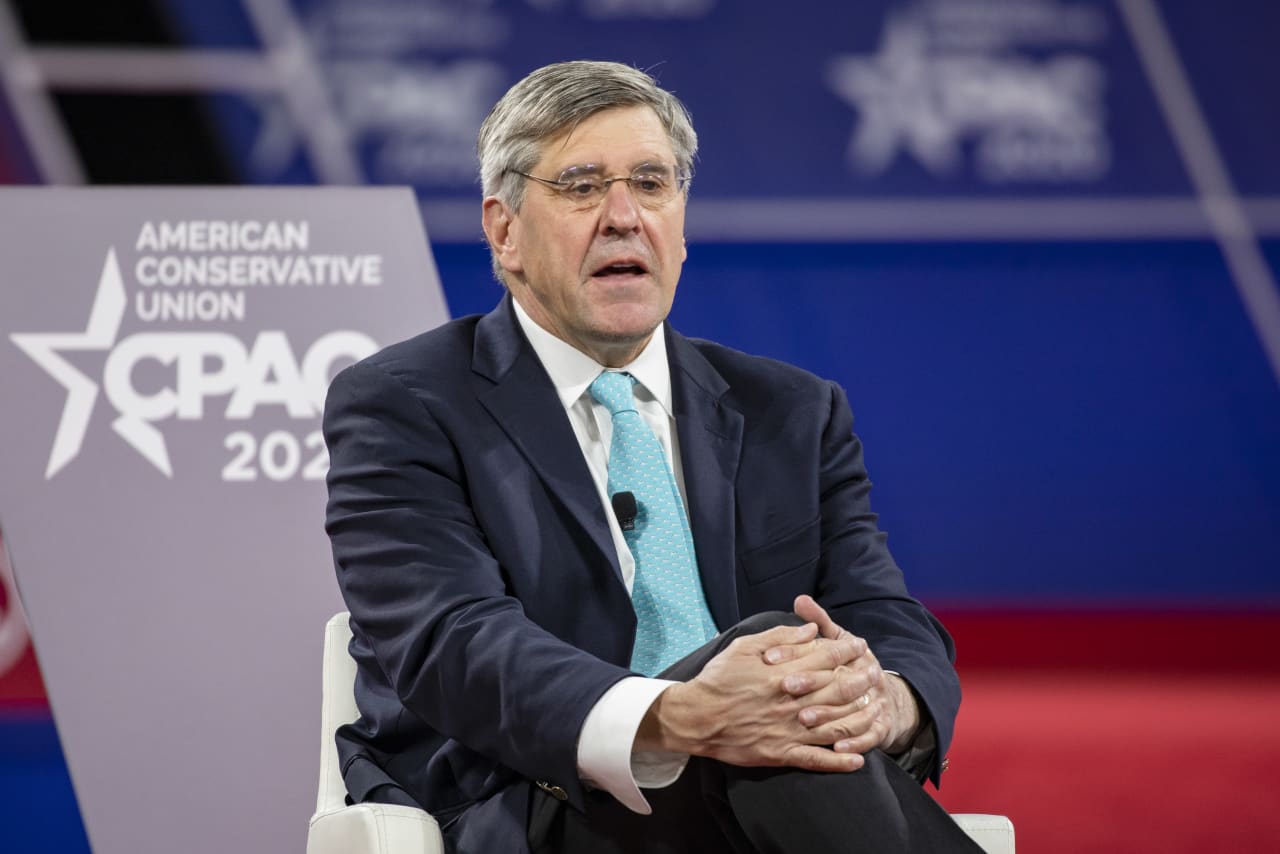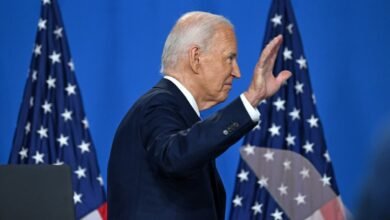
Donald Trump’s love for tariffs has only grown in the years he’s been out of office.
The former president appears to be well on his way to securing the Republican nomination for president for a third time, and a central policy pitch of his campaign is to institute an across-the-board 10% tariff on imported goods, which he says will protect American companies and workers from unfair foreign competition.
There is perhaps no issue that sets Trump apart from his Republican allies more than his love for tariffs, and longtime GOP policy hands — while not exactly embracing the idea — are reconciling themselves to it and planning how a new tariff regime might fit into a broader pro-growth economic agenda.
Trump economic adviser Stephen Moore is one of those veterans of Republican policy circles who is trying to look on the bright side.
“I’m not in favor of the tariff, but he is,” Moore told MarketWatch in a phone interview. “One of the things that I’ve said to Trump is that if we have to do it, let’s make it part of a package to pay for other things, like making his tax cuts permanent.”
No matter who wins the November election, tax policy will be a major priority, given that many of the provisions in Trump’s 2017 tax-reform law are set to expire starting at the end of 2025. If Congress and the president don’t act to extend these provisions, U.S. families and businesses could be hit with steep tax increases.
While Trump and others in the conservative movement have proposed cutting corporate tax rates further, Moore believes it will be a fight simply to keep the top corporate rate — which was brought down from 35% by the 2017 law — at 21%.
Read more: Trump tax cut 2.0: Would slashing the corporate rate again boost stocks?
Moore said that in recent conversations, Trump has expressed a desire to emphasize tax reform for small businesses if he were to win a second term, which could mean putting up a fight to make a 20% deduction on pass-through business income permanent.
The pass-through deduction is especially important for owners of small businesses, which are often organized as pass-through entities.
Paying for the extension of these tax cuts may prove difficult, as Trump has vowed that if he is elected, he won’t cut Social Security or Medicare, two of the biggest components of the federal budget.
Trump has called for enacting new tariffs of 10% on all imports, a move that could raise upwards of $300 billion per year, according to the Tax Foundation. The Trump campaign maintains that foreign exporters, not U.S. consumers, would pay these costs.
Read more: Trump’s proposal of 10% tariff would be $300 billion tax on Americans, think tank says
That’s the sort of money that could help pay for making the 2017 tax cuts permanent, which Moore believes would boost business investment, create new jobs and partially offset the negative effects of tariffs, like higher prices for consumer goods.
Moore characterized the tariffs as a “consumption tax on things you import” that will be paid in part by Americans in the form of higher prices, but he dismissed criticisms that the policy would ignite a trade war.
Other countries already have broad-based consumption taxes, known as value-added taxes or VAT, that raise the price of U.S. exports, he said. “What Trump says, and I agree with him, is that we’re in a trade war already,” Moore said. “Trump would say we’re just leveling the playing field.”
Source link








